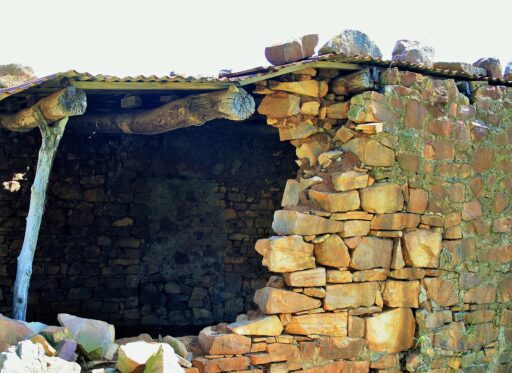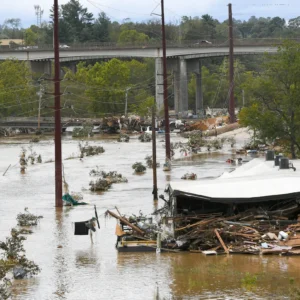By the time I got there, the walls had been down for nearly two millennia. The actual Temple walls. That was the year when, on the Western slopes of Israel’s Hula Valley, in a high school classroom used for Shabbat services, I was first drawn into Jewish prayer. May You rebuild it soon in our days, Jerusalem, the Temple, I prayed.
*
Body: wall. My walls have been under attack this year. Eyes, teeth, shoulder, feet: damaged but not toppled, (somewhat) repaired.
*
My people, my self: not a wall but a membrane between us.
*
The walls of the First Temple came down in 586 BCE. The Babylonians did it, bringing on the first exile. The walls of the Second Temple came down in 70 CE. The Romans did it. Both catastrophes took place on the ninth day of the Hebrew month Av, Tisha B’Av.
*
My people, some of my people, fast on Tisha B’Av, a national day of mourning. My people, some of my people, read Eicha, Lamentations, sitting on the floor in the dark on Tisha B’Av.
*
From Lamentations:
Lonely sits the city. ... The Lord has acted like a foe, He has laid waste Israel, Laid waste all her citadels, Destroyed her strongholds. . . . He has destroyed His Tabernacle . . . I am the man who has known affliction . . . He has worn away my flesh and skin; He has shattered my bones. . . . He has walled me in and I cannot break out . . . He has broken my teeth on gravel, Has ground me into the dust.
*
Like most years, this year I didn’t sit on the floor in the dark. I didn’t listen to a fellow congregant chant Lamentations.
But I remembered what Rabbi Alan Lew teaches in This Is Real and You Are Completely Unprepared: The Days of Awe As a Journey of Transformation. “Tisha B’Av,” writes Lew, “is the moment of turning, the moment when we turn away from denial and begin to face exile and alienation as they manifest themselves in our own lives—in our alienation and estrangement from God, in our alienation from ourselves and from others.”
*
Facebook: it’s personal. One “friend” has published a new book. Another “friend” is on a river wine cruise in France. I could be happy for them. But I’m not. When I look at their “posts,” I don’t see them. I see myself. Where is my book? When will I travel? Facebook: where I suffer my alienation and estrangement from myself and others.
*
That someone has less might make you happy with yours—
A piece—the first three lines—broken off from Lia Purpura’s poem “Natural Disaster.”
*
The walls came down. It wasn’t a natural disaster, unless power, the human drive for power, is natural.
*
A souvenir, a relic: a rock pocketed, maybe smuggled out from among the ruins surrounding the Wailing Wall. It doesn’t merely sit on a shelf, content to be on display, in Enid Shomer’s “From the Wailing Wall”:
We place it next to our other books as if it were the fossil record of prayer, an unsplit geode with ancient words glittering at its core. Soon the bit of rubble rules the house, paring all our goods down to mannerisms, ploys. It is… the part of the outside that keeps wanting in.
*
The rubble of our lives: it’s personal, it’s communal.
*
“[T]he Great Temple,” writes Rabbi Lew, “was a structure that was centered around emptiness. The Holy of Holies, the Sacred Center upon which all the elaborate structural elegance of the Temple served to focus, was primarily a vacated space.”
“On Tisha B’Av it is as if this emptiness has broken loose from its bounds and swallowed everything up. The Temple burns. The emptiness once confined to the center of the Temple now characterizes it completely.”
“This image touches us deeply,” continues Rabbi Lew, “because we are always under siege, and we are held there by our attempts to hold off the emptiness at the center of our lives…. Against the hard information that we came from nothing and end there as well, against the resulting suspicion that we might, in fact, be nothing all the while, we struggle mightily to construct an identity, but we’re never quite persuaded by it.”
*
Once I was a professor. Once I was a director of a Center for Jewish Studies. Once I was a director of a creative writing program. Once I was a department chair.
The walls within which these identities thrived for thirty-two years have come down. No more Karpen Hall 219, my office. No more Karpen Hall 216, a classroom in which I taught and where I felt, perhaps more than any other place in the world, free. No more Phillips Hall where I happily and productively sat with chancellor after chancellor, provost after provost, dean after dean.
Emptiness is more accessible to me now, two years into retirement, than before.
*
One Tisha B’Av I was drawn into the vortex of prayer at the Western, the so-called Wailing Wall. Hundreds—thousands of men crowded the plaza sloping down to the Wall. I negotiated my way between them. The closer I got to the Wall, the greater the intensity of prayer. Then, for a moment, I stood face-to-face with it, the retaining wall, all that remains of the Temple. Its massive Herodian stones rising above me.
I think now that instead of standing there, I should have stepped to the side, away from the fervent, faithful crowd. That’s where you’re most likely to find me: to the side, on the edge. That night I should have wandered south, toward the site of what’s now the Davidson Center’s archeological center, there to stand among the Temple’s fallen stones.
*
From Lia Purpura’s “Natural Disaster”:
Maybe being closer to nothing makes stuff not matter so much, (or a few things matter a lot). Maybe gratitude isn’t best measured by comparison.
*
Yismach Moshe [Moses] b’matnat chelko, “Moses rejoiced in the gift of his portion.” His portion: trusted servant of God.
My portion: _______. I would like to be able to name it as succinctly as a Shabbat morning prayer does. I would like to learn how to rejoice in my portion. When I learn to rejoice in it, I will be able to rejoice in the gift you’ve received of your portion. And if not rejoice, then at least feel grateful for the opportunity to experience your joy along with you.
*
Now I pray, Do not rebuild it, not in our days, not in the days of our children, grandchildren, great grandchildren….
Now I pray, This year, may I topple a wall, the wall that alienates me from you and You. May the emptiness in which we meet, soul-to-soul, be the Sacred Center in which generosity and gratitude boundlessly flow.
Richard Chess has published four books of poetry, the most recent of which is Love Nailed to the Doorpost. Professor emeritus from UNC Asheville, where he directed the Center for Jewish Studies for 30 years, Chess serves on the boards of Yetzirah: A Hearth for Jewish Poetry and Black Mountain College Museum + Arts Center, where he co-directs its Faith in Arts project. You can find him at www.richardchess.com .





